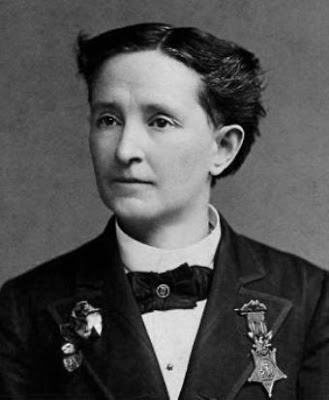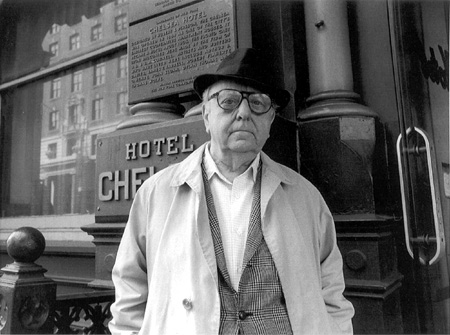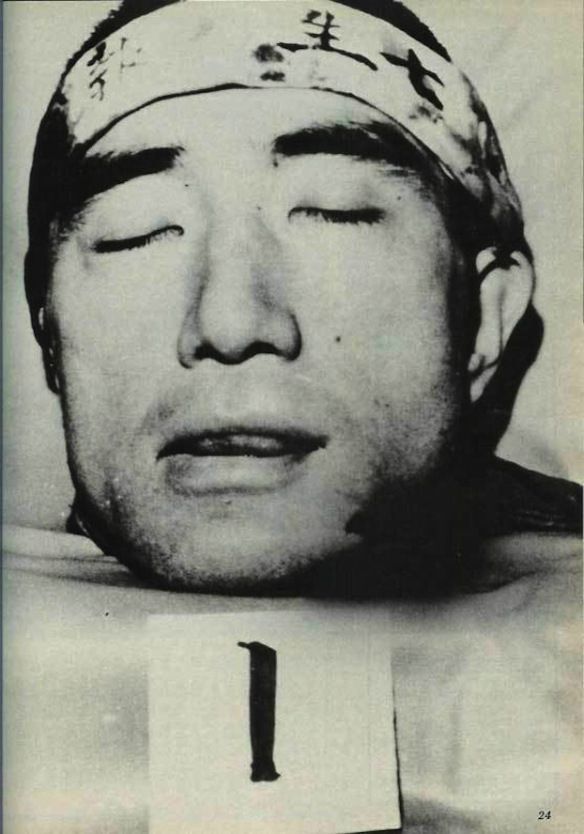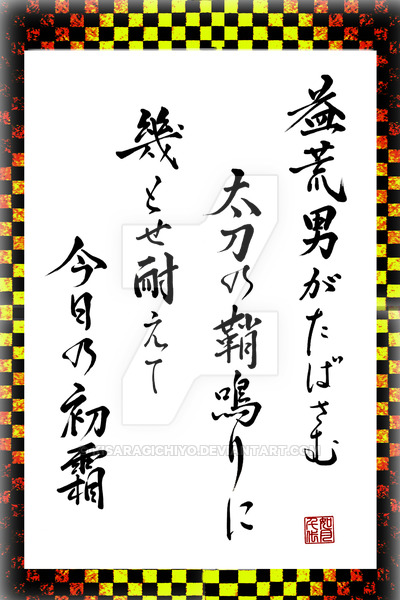|
Gay Wisdom for Daily Living brought to you by White Crane Institute ͏ ͏ ͏ ͏ ͏ ͏ ͏ ͏ ͏ ͏ ͏ ͏ ͏ ͏ ͏ ͏ ͏ ͏ ͏ ͏ ͏ ͏ ͏ ͏ ͏ ͏ ͏ ͏ ͏ ͏ ͏ ͏ ͏ ͏ ͏ ͏ ͏ ͏ ͏ ͏ ͏ ͏ ͏ ͏ ͏ ͏ ͏ ͏ ͏ ͏ ͏ ͏ ͏ ͏ ͏ ͏ ͏ ͏ ͏ ͏ ͏ ͏ ͏ ͏ ͏ ͏ ͏ ͏ ͏ ͏ ͏ ͏ ͏ ͏ ͏ ͏ ͏ ͏ ͏ ͏ ͏ ͏ ͏ ͏ ͏ ͏ ͏ ͏ ͏ ͏ ͏ ͏ ͏ ͏ ͏ ͏ ͏ ͏ ͏ ͏ ͏ ͏ ͏ ͏ ͏ ͏ ͏ ͏ ͏ ͏ ͏ ͏ ͏ ͏ ͏ ͏ ͏ ͏ ͏ ͏ ͏ ͏ ͏ ͏ ͏ ͏ ͏ ͏ ͏ ͏ ͏ ͏ ͏
|
|
||||
| This Day in Gay History | ||||
November 25Born 1832 - DR. MARY EDWARDS WALKER, American feminist and physician, born (d: 1919); American feminist, abolitionist, prohibitionist, alleged spy, prisoner of war, surgeon, and the only woman to receive the Medal of Honor. Although she was called by her male enemies “the most distinguished sexual invert in the United States,” Dr. Edwards, although certainly a transvestite, was not necessarily a Lesbian. She was an ardent feminist, obsessed by the feminist dress-reform movement begun by Amelia Bloomer, and a mover and shaker in stirring up trouble whenever she was refused the right to do anything a man was permitted to do. A qualified physician, she had to force her service on an unwilling Federal government during the Civil War; she eventually was awarded the Congressional Medal of Honor for her work; and she became the first woman the U.S. permitted to dress in male attire – a right granted by Congress, no less! That she lived together with a younger feminist, Belva Lockwood, after she divorced her husband is provocative, but hardly proof that either of them were Lesbians. Eventually, Dr. Walker moved out of step with her sister feminists because her taste in dress offended them. It was one thing to wear men’s trousers – that was at least practical – but it was quite another thing to go whole hog, as did Mary Walker. She affected shirt, bow tie, jacket, top hat and cane. A very full discussion of this fascinating woman appears in Jonathan Katz’s Gay American History. 1896 - VIRGIL THOMSON, American composer and music critic was born (d. 1989); Thompson was from Kansas City, Missouri and was instrumental in the development of the "American Sound" in classical music so often associated with the patriotic compositions of Aaron Copland. He displayed an extraordinary intelligence at an early age and attended Harvard University. His tours of Europe with the Harvard Glee Club helped nurture his desire to return there. Upon his return to Paris, he eventually studied with Nadia Boulanger and became a fixture of "Paris in the twenties." His most important friend from this period was Gertrude Stein, who was an artistic collaborator and mentor to him. Following the publication of his book The State of Music he established himself in New York City, as a peer of Aaron Copland and was also a music critic for the New York Herald-Tribune from 1940 through 1954. His writings on music and his reviews of performances in particular, are noted for their wit and their independent judgments. His definition of music was famously "that which musicians do," and his views on music are radical in their insistence on reducing the rarefied aesthetics of music to market activity. He even went so far as to claim that the style a piece was written in could be most effectively understood as a consequence of its income source. He won the Pulitzer Prize for Music in 1949 with his film score for Louisiana Story. Additionally, Thomson was famous for his revival of the truly rare technique of composing "musical portraits" of living subjects, often spending hours in a room with them before rushing off to finish the piece on his own. Many subjects report feeling that the pieces did capture something unique about their identities in spite of the fact that nearly all of the portraits were absent any clearly representational content. Later in life, Thomson became a sort of mentor and father figure to a new generation of American tonal composers such as Ned Rorem, Paul Bowles and Leonard Bernstein, a circle united as much by their shared Gay sexuality as by their similar compositional sensibilities. Died 1970 - YUKIO MISHIMA, Japanese author, dies (b: 1925) Unlike the West, in Japan sex was not viewed in terms of morality, but rather in terms of pleasure, social position, and social responsibility. While modern attitudes to homosexuality have changed, this is frequently true even today. Like the pre-modern West, only sexual acts were seen as being homosexual or heterosexual, not the people performing such acts. The term gay is never used in discussing ancient and historical sources because of the modern, western, political connotations of the word and because the term suggests a particular identity, one with which homosexuals even in modern Japan may not identify. From religious circles, same-sex love spread to the warrior class, where it was customary for a young samurai to apprentice to an older and more experienced man. The young samurai would be his lover for many years. The practice was known as shudo, the way of youth, and was held in high esteem by the warrior class. Like the ancient Greeks, homosexual love was between an older man and an adolescent youth. And like the Greeks, the sexual relationship was expected to end when the youth came of age, at which time he would become the mentor in such a relationship. Just like the Greeks, the Samurai did not practice exclusive homosexuality or exclusive heterosexuality. They were also expected to marry and have children;only this came later in life. Unlike the Greek tradition, it was the younger man's duty to court the older man. Sometimes the mentor and mentee would remain close friends after the mentee came of age, and other times a homosexual relationship would not end despite the custom. While male love in Japan existed both before and after the Samurai, Shudo was introduced to the Samurai by Kukai, also known as Kobo Daishi (the great master from Kobo). Kobo was the founder of a Japanese branch of Vajrayana Buddhism, and also the founder of the Shingon school at Mount Koya in 816 A.D. Legend has it that he learned all about nanshoku from China. Ancient China had a thriving homoerotic tradition, including homosexual marriages. Kobo's school at Mt. Koya became known for Shudo, and its homoerotic literary works. Shudo flourished among the Samurai between the 1200's and the 1600's, and declined after that as the Samurai themselves declined in importance. Before the Samurai, male love existed among Japanese Buddhist monks. It was widely held that their vows of chastity only applied to the opposite sex. After the Samurai, while Japan was in an era of relative peace, male love became more common among the general population and even became commercialized. When it did, male love lost touch with its warrior ideals and sense of honor. Mishima was devoted to the restoration of these ancient Japanese cultural ideals. On November 25, 1970, Mishima and four members of the Tatenokai, under pretext, visited the commandant of the Ichigaya Camp - the Tokyo headquarters of the Eastern Command of Japan's Self-Defense Forces. Inside, they barricaded the office and tied the commandant to his chair. With a prepared manifesto and banner listing their demands, Mishima stepped onto the balcony to address the soldiers gathered below. His speech was intended to inspire a coup d'etat restoring the emperor to his rightful place. He succeeded only in irritating them, however, and was mocked and jeered. He finished his planned speech after a few minutes, returned in to the commandant's office and committed seppuku. The customary kaishakunin duty at the end of this ritual had been assigned to Tatenokai member Masakatsu Morita, but Morita, also known to have been Mishima's lover, was unable to properly perform the task: after several attempts, he allowed another Tatenokai member, Hiroyasu Koga, to do the task. Morita then committed seppuku, and then Koga beheaded him. Another traditional element of the suicide ritual was the composition of jisei (death poems), before their entry into the headquarters. Mishima prepared his suicide meticulously for at least a year and no one outside the group of hand-picked Tatenokai members had any indication of what he was planning. His biographer, translator, and former friend John Nathan suggests that the coup attempt was only a pretext for the ritual suicide of which Mishima had long dreamed. Mishima made sure his affairs were in order, even leaving money for the defense trial of the three surviving Tatenokai members.
Today's Gay Wisdom | ||||
|
|8|O|8|O|8|O|8|O|8|O|8|O|8|O|8| Gay Wisdom for Daily Living from White Crane Institute "With the increasing commodification of gay news, views, and culture by powerful corporate interests, having a strong independent voice in our community is all the more important. White Crane is one of the last brave standouts in this bland new world... a triumph over the looming mediocrity of the mainstream Gay world." - Mark Thompson Exploring Gay Wisdom & Culture since 1989! |8|O|8|O|8|O|8|O|8|O|8|O|8|O|8| | ||||
|
|||||
|





